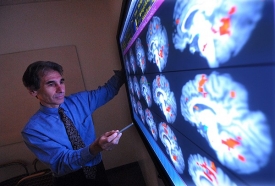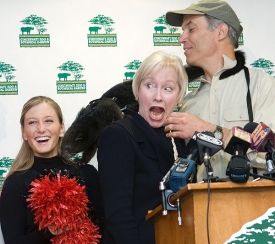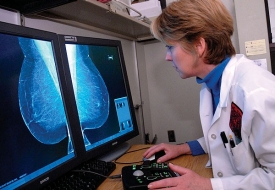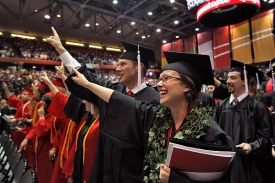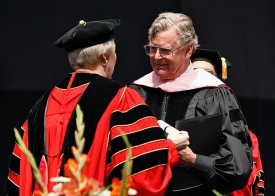Medical breakthroughs
Good grapes -- It turns out grape juice isn't just good for kids. A pilot study conducted by UC neurologists suggests that drinking Concord grape juice may help older adults with early memory decline improve their memory function. Concord grape juice contains compounds with antioxidant and anti-inflammatory properties, which scientists believe may affect signaling in memory centers of the brain. UC researchers say they observed promising improvements in verbal and spatial memory function for those drinking Concord grape juice.
Brain cancer vaccine -- UC cancer specialists are part of a nationwide clinical trial investigating whether a vaccine generated from a patient's own white blood cells can boost the immune system to fight off brain cancer recurrence. Their goal is to find a more effective way of treating glioblastoma multiforme, a fast-growing tumor that occurs in the central nervous system.
Criminal intent -- We've known for years that lead is toxic to the nervous system, particularly among children and adolescents, but now UC scientists are the first to look at its effects on adult criminal behavior. As part of the UC Cincinnati Lead Study, faculty from environmental health, pediatrics and criminology used 30-year data to discover a link between elevated blood-lead levels in early childhood and higher rates of criminal arrest in adulthood. "The lead-crime connection remained even after we adjusted the results for a host of other potential explanatory variables, including poverty and poor parenting," explains team member John Paul Wright, associate professor of criminal justice.
Curing pancreatitis -- The UC Pancreatic Disease Center recently completed its 100th specialized procedure to "cure" chronic pancreatitis. The team is one of only three in the world that offers the lifesaving procedure in which the pancreas is removed and specific insulin-producing cells are processed and implanted back into the patient, resulting in the elimination of debilitating abdominal pain and often, the need for insulin injections.
National recognition -- The renowned Howard Hughes Medical Institute recently named UC cardiovascular biologist Jeffery Molkentin as one of its investigators, recognizing him for "challenging the boundaries of science by pursuing bold and creative research." Molkentin's work has already expanded the scientific community's understanding of how cellular changes influence heart disease and muscular dystrophy. He is one of only four HHMI investigators ever appointed in Ohio, the third from UC and the first at Cincinnati Children's Hospital Medical Center.
Millions for aerospace, U.S. defense
Apparently, the sky isn't the limit for UC researchers thanks to a recent $28 million grant from Ohio Research Scholars to support the university's aerospace program, led by Professor Awatef Hamed. Scientists from UC, Ohio State University and the University of Dayton will use the funds to study power and propulsion systems, low-emission energy sources and aerospace system issues surrounding acoustics, turbine aerodynamics and heat transfer.
In addition, UC bioaerosol experts have received a $1.3 million grant to investigate a new method for killing the biological agents most likely to be used in weapons of mass destruction. Sergey Grinshpun, director of UC's Center for Health-Related Aerosol Studies, will lead researchers to create a compound that can be released into the air after an explosion to target and destroy dangerous biological agents. Funding comes from the United States Department of Defense.
New faces at UC
Designer named DAAP dean
Renowned for his international graphic design career, Robert Probst will lead the College of Design, Architecture, Art, and Planning as the new dean. Probst has been a DAAP professor for 30 years, was named director of the School of Design in 2001 and served as interim dean for the last year.
Composer new CCM dean
Award-winning composer Douglas Knehans has been named dean for UC's College-Conservatory of Music. Knehans came to UC from the University of Tasmania in Australia, where he served as director and professor of music.
Board welcomes trustee
For Robert Richardson Jr., Eng '02, JD '05, his appointment as the newest member of the university's Board of Trustees is a homecoming. Besides receiving two degrees from UC, the attorney was student body president from 2001-02. The 29-year-old was the youngest trustee on record at the time of his appointment in February.
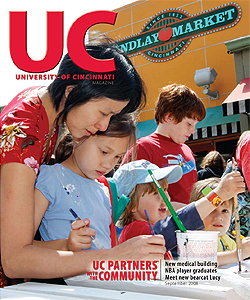
 Issue Archive
Issue Archive